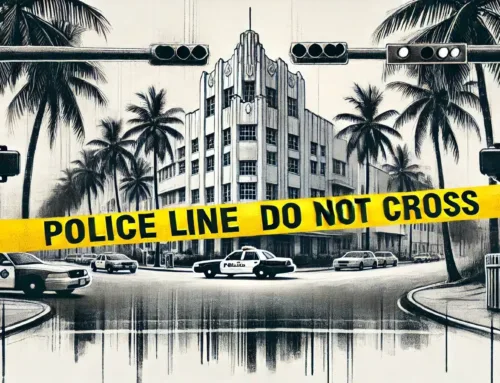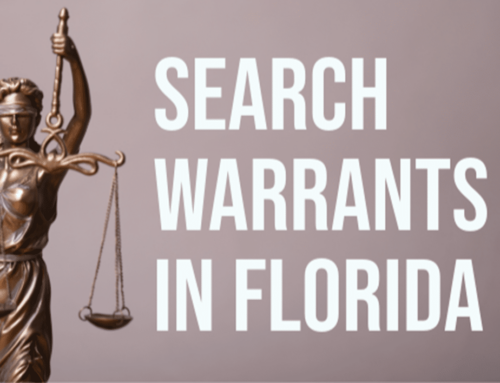Charging Documents in Florida: What They Are and Why They Matter
Being accused of a crime can be a stressful and confusing experience, especially if you don’t understand the legal processes involved. One of the key steps in these processes is the filing of a ‘charging document.’ This is a critical component of any criminal case, so let’s unpack what it means, why it’s important, and how it affects you as an individual facing charges in Florida.
What is a Charging Document?
In essence, a charging document is a written accusation declaring that a person has committed a criminal offense. This document is presented to a court, marking the transition from the investigatory stage to the official criminal charge. Its form and substance can vary, but some kind of charging document is essential in every criminal prosecution.
There are two primary functions of a charging document:
1. Initiating Formal Prosecution
The initial role of a charging document is to officially kick-start the prosecution of a criminal offense in court. Until it’s filed, the court’s involvement is quite limited — mainly to oversee the investigative proceedings of a grand jury or state attorney, approve the arrest or search of a suspect, or assess and authorize the pre-trial release or detention of an arrested person.
The filing of a charging document changes things dramatically. It signals the court’s full involvement and sets into motion a series of legal proceedings constituting a criminal prosecution. It’s the starting line for all courtroom procedures, ranging from arranging for the accused to appear in court and plead to the charge, to setting trial dates, enabling discovery, and organizing the actual trial.
Importantly, it’s also how the court obtains jurisdiction over the case. A conviction is rendered void if it’s entered without the filing of a valid charging document. This provides the first formal opportunity for an accused person to assert a defense against the allegations. Once the charging document is filed, you, as the accused, can actively defend yourself against the allegations by appearing in court, pleading not guilty, taking discovery, and proceeding to trial.
2. Informing the Accused
The second function of a charging document is to inform you, the accused, of the nature of the allegations against you. It’s your official notice of what you’re being accused of, allowing you to prepare your defense adequately. This is a fundamental right protected under the Sixth Amendment to the U.S. Constitution and Article 1, Section 16 of the Florida Constitution.
Types of Charging Documents
Charging documents can take various forms, with some being more formal and specific than others. Here are some common types you might encounter:
- Indictment or Information: These are the most formal and specific types of charging documents. They’re prepared and filed by a grand jury or state attorney following a set of prescribed procedures, and they need to meet a certain standard of sufficiency.
- Affidavit or Docket Entry: Used in prosecutions in county court for violations of municipal ordinances and metropolitan county ordinances.
- Notice to Appear: Used for prosecutions of misdemeanors, municipal ordinances, and county ordinances.
- Uniform Traffic Citation: Used for prosecuting both criminal and civil traffic offenses.
While ‘notice to appear’ and ‘uniform traffic citation’ are simpler forms used for minor offenses, serious criminal offenses are charged by the more formal and complete indictment or information.
Why it Matters
Understandably, all of this can seem a bit daunting. So why should you care about the specifics of your charging document?
Well, it’s simple: a charging document plays a pivotal role in the defense of your case. It gives you a clear picture of the accusations leveled against you, allowing you and your defense attorney to build a robust strategy to challenge the charges. Without a valid charging document, any resulting conviction could be rendered void, a fact that your defense attorney might use to your advantage.
As such, understanding charging documents in Florida can be one of your first steps toward a successful defense strategy. This can ensure that you are well-equipped to navigate the complicated waters of your criminal prosecution, secure in the knowledge that you understand each step of the process.
Remember, when it comes to criminal charges, knowledge is power. Understanding the nuances of your case, like the nature and purpose of your charging document, can make a real difference in your defense strategy and, ultimately, in the outcome of your case.
Contact Experienced Defense Counsel
While this post offers you an overview of charging documents, remember that every case is unique. Always consult with a knowledgeable criminal defense attorney to ensure that your rights are protected and that you are taking the best course of action.
CALL US for a FREE CONFIDENTIAL CONSULTATION at (305) 538-4545, or take a moment to fill out our secure intake form.* The additional information you provide will greatly assist us in responding to your inquiry.
*Due to the large number of people who contact our law office requesting our assistance, it is strongly suggested that you take the time to provide us with specific details regarding your case by filling out our confidential and secure intake form. The additional details you provide will greatly assist us in responding to your inquiry promptly and appropriately.
ALWAYS INVESTIGATE A CRIMINAL DEFENSE ATTORNEY’S QUALIFICATIONS AND EXPERIENCE BEFORE MAKING A DECISION ON HIRING A LAWYER FOR YOUR CRIMINAL CASE IN MIAMI-DADE COUNTY








